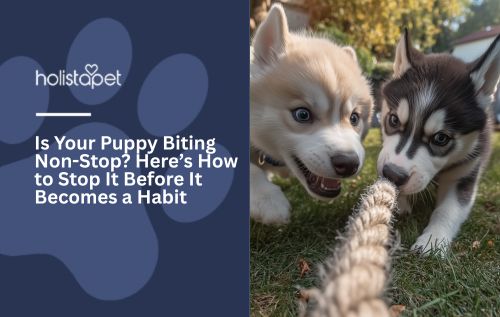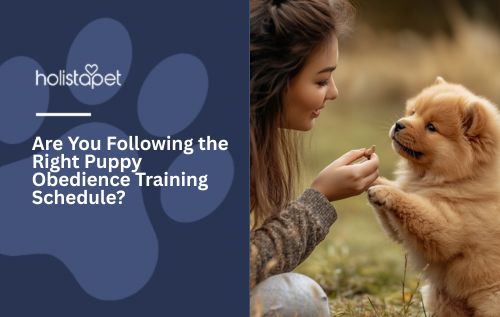Puppies are adorable, energetic, and full of curiosity—but those little teeth can be seriously sharp! If you're dealing with a puppy that loves to nip, chew, or bite everything (including your fingers), you're not alone. Learning how to stop a puppy from biting is one of the first big challenges most new dog owners face.
Luckily, with the right techniques and a bit of consistency, you can guide your pup toward gentler behavior. Let’s dive into why puppies bite and how to correct this behavior without damaging your bond.

Why Do Puppies Bite in the First Place?
Before you jump to corrections, it’s important to understand why your puppy is biting:
-
Teething: Just like human babies, puppies go through a teething phase (usually between 3 to 6 months).
-
Exploration: Puppies use their mouths to explore the world around them.
-
Play Behavior: Biting often mimics natural play with their littermates.
-
Overstimulation or Lack of Boundaries: If your puppy gets too excited, they might bite as a way to express energy.
How to Stop a Puppy From Biting: Step-by-Step Guide
Here’s a proven process to help you reduce and eventually stop biting behavior:
1. Use Bite Inhibition Training
When your puppy bites too hard during play, let out a sharp “Ouch!” or yelping sound—just like a fellow puppy would. This helps them understand they went too far.
2. Redirect to Chew Toys
Always have a variety of puppy-safe chew toys nearby. When they bite you, immediately offer a toy instead. This teaches them what’s acceptable to chew on.
3. Give Time-Outs
If biting continues, calmly stop interaction and walk away for 30-60 seconds. This teaches your puppy that biting ends the fun.
4. Avoid Rough Play
Games like tug-of-war or wrestling can encourage biting. Stick to gentler games like fetch or puzzle toys while your puppy is still learning.
5. Reward Good Behavior
When your puppy plays gently or chooses a toy instead of your hand, praise them and offer a treat. Positive reinforcement goes a long way!
6. Be Consistent
Every member of the household must respond to biting the same way. Mixed messages will only confuse your puppy.

Frequently Asked Questions
Q: When will my puppy stop biting naturally?
A: Most puppies outgrow biting by 6 months, but it varies. Training plays a big role in how fast they learn.
Q: Is it okay to punish my puppy for biting?
A: No. Physical punishment can lead to fear and aggression. Stick to redirection, time-outs, and positive reinforcement.
Q: Should I use bitter sprays to stop biting?
A: Bitter sprays can deter biting on furniture, but they shouldn’t replace training. Focus on behavior correction first.
Q: My puppy bites ankles and pants—how do I stop that?
A: Use a toy to distract and redirect. You can also train the “leave it” or “off” command to discourage this.
Q: What if nothing is working?
A: If biting persists beyond six months or becomes aggressive, consult a professional dog trainer or behaviorist.
Helpful Notes
-
Use frozen carrots or frozen washcloths for teething relief.
-
Avoid encouraging play that involves your hands directly.
-
Crate training and structured nap times can reduce overstimulation (a common trigger for biting).
-
Socialization with other vaccinated puppies teaches bite inhibition naturally.
Final Thoughts

Puppy biting is a normal but frustrating phase. With consistency, patience, and the right training tools, your pup will learn how to interact gently. Remember, the goal isn’t to stop all mouthing overnight—but to teach your puppy how and when to use their mouth appropriately.
Stick with it, and you’ll soon have a well-mannered companion who uses their charm—not their teeth—to win your heart.







![Probiotics For Dogs [Soft Chews] - HolistaPet](http://www.holistapet.com/cdn/shop/files/Probiotic-Infographic-1_472d7a29-e30c-435a-9638-1365d8c3a9f9.jpg?v=1725384841&width=104)



























Leave a comment
This site is protected by hCaptcha and the hCaptcha Privacy Policy and Terms of Service apply.